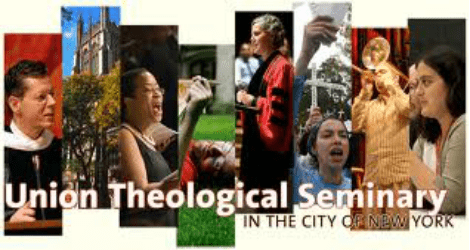Puritan and Revivalist Theologies in American Protestantism
[wpcol_1half id=”” class=”” style=””]
The extent to which Puritan theology has colored the theological heritage of the United States has been debated, but it is certainly a significant part of our theological lineage. So too, and perhaps to a much greater degree, is the theology of revivalism, which has affinities with Puritan theology but is distinct from it. Revivals played a significant role in the churching of the United States and however disparate they may have been in different times and different locations, they largely played from the same script. The potential believer was made to despair of the possibility of their own life without conversion. The anxiety and fear produced was tempered by the offer of a new way of life in Jesus Christ. And the culmination of the revival was the joyous acceptance of Christ with all the attendant promises of the rewards of a new life.
While revivals were in a sense communal experiences, and certainly benefitted from what Durkheim labeled the “collective effervescence” of religious emotion experienced in a group setting, they promoted an essentially privatized theology. As George Marsden has noted, “The individual stood alone before God; his choices were decisive. The church, while important as a supportive community, was made up of free individuals.”[22] The theme of working for the common good is largely absent, and when found in revivalist theology, it is often countered by premillennialist dispensationalism which averred that reform of the social order was not a primary concern of the church because it would not be realized in any meaningful way until the advent of the Second Coming of Christ.
[/wpcol_1half] [wpcol_1half_end id=”” class=”” style=””]
One of the cruder results of this emphasis on the individual in American theology was that school of thought that came to be known as the Gospel of Wealth. Drawing as it did on themes of calling and industriousness, the Gospel of Wealth may be said to be, in some respects, the offspring of Puritan theology. But it lacks the mediating influence of the Puritan suspicion of immoderate wealth. Of the numerous tracts and sermons printed and delivered supporting this new theological direction, none enjoyed wider hearing than Russell Conwell’s “Acres of Diamonds” sermon.
Conwell first gave his sermon in 1861 and repeated it six thousand times throughout the country. The rhetorical thrust of the sermon was that every believer had acres of diamonds available in their own backyards. One had only to invest the necessary industry to be assured of spectacular return. In Conwell’s hands, the Calvinist understanding of wealth as a sign of God’s grace was grossly distorted into an implication that poverty was a mark of sinfulness and every Christian had a duty to accumulate wealth.[23] When Conwell challenges himself in the sermon with a query as to whether growing rich is antithetical to the Gospel, he replies “…to make money honestly is to preach the Gospel.”[24] He continues, “…the number of poor who are to be sympathized with is very small. To sympathize with a man whom God has punished for his sins, thus to help him when God would still continue a just punishment, is to do wrong, no doubt about it, and we do that more than we help those who are deserving.”[25] With Conwell and those who followed him, Protestant theology finally takes the step which Calvin had resisted and around which Puritan theology had gingerly tread. Protestant economic thought was being used to praise the rich and damn the poor.
[/wpcol_1half_end]






Unbound Social